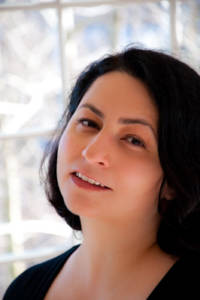The Common brings you a special two-part series to celebrate the Pioneer Valley Poetry Productions Festival of Major American Poets, which was held at Amherst College’s Fayerweather Hall on October 13 and 14.
Issue 14 Launch in Brooklyn

Join Issue 14 contributors Josephine Rowe, Mik Awake, and Maria Terrone to celebrate the launch of The Common‘s fall issue. RSVP to our Facebook event here!
Thursday, November 2
7pm
WORD Brooklyn
126 Franklin Street
Visit Us at Boston Book Festival!

Love reading The Common and in the Boston area this October? Come meet some of the faces behind the magazine! We’ll be attending the 2017 Boston Book Festival on October 28th, from 11am to 5pm in Copley Square, tabling with The Massachusetts Review. We’re in booth 23, which will be located along Boylston Street, up by Trinity Church. We have tasty treats to give out to those who stop by our booth, while supplies last, and discounted issues for sale. For more information on the festival schedule, special events, and visiting authors, click here.
Some Voice Has Spoken: an interview with Kirun Kapur
ISABEL MEYERS interviews KIRUN KAPUR Kirun Kapur is a poet, teacher, poetry editor at The Drum, and author of the collection Visiting Indira Gandhi’s Palmist. Kapur’s debut volume, which grapples with themes of borders, religion, and feminism, feels more relevant by the day since its release in 2015.
Kirun Kapur is a poet, teacher, poetry editor at The Drum, and author of the collection Visiting Indira Gandhi’s Palmist. Kapur’s debut volume, which grapples with themes of borders, religion, and feminism, feels more relevant by the day since its release in 2015.
Last fall, Kapur taught at Amherst College. She recently spoke to former student Isabel Meyers about Visiting Indira Gandhi’s Palmist; the intersection of personal and political history; girlhood; family as a sense of place; and trusting the poem’s voice.
September 2017 Poetry Feature
This month The Common brings you a selection from the anthology WORDS FOR WAR, NEW POEMS FROM UKRAINE, edited by Oksana Maksymchuk and Max Rosochinsky, forthcoming next month from Academic Studies Press.
The armed conflict in the east of Ukraine brought about an emergence of a distinctive trend in contemporary Ukrainian poetry: the poetry of war. Directly and indirectly, the poems collected in this volume engage with the events and experiences of war, reflecting on the themes of alienation, loss, dislocation, and disability; as well as justice, heroism, courage, resilience, generosity, and forgiveness. In addressing these themes, the poems also raise questions about art, politics, citizenship, and moral responsibility. The anthology brings together some of the most compelling poetic voices from different regions of Ukraine. Young and old, female and male, somber and ironic, tragic and playful, filled with extraordinary terror and ordinary human delights, the voices recreate the human sounds of war in its tragic complexity.
ANASTASIA AFANASIEVA | “Can there be poetry after:”
BORYS HUMENYUK | “Our platoon commander is a strange fellow”
ALEKSANDR KABANOV | “He came first wearing a t-shirt inscribed ‘Je suis Christ,’”
KATERYNA KALYTKO | “April 6”
LYUDMYLA KHERSONSKA | “When a country of — overall — nice people”
SERHIY ZHADAN | “Third Year into the War”
Ask a Local: Anzhelina Polonskaya, Frankfurt, Germany
With ANZHELINA POLONSKAYA
Your name: Anzhelina Polonskaya
Current city or town: Frankfurt
How long have you lived here: 2 years
Three words to describe the climate: windy in winter
Best time of year to visit?: spring, summer
1) The most striking physical features of this city/town are. . . The skylines and the River Main. Frankfurt was destroyed during the second war, and the skylines give a “fresh air” to the city. Of course, I cannot compare the city to New York or Chicago, but I think the modern architecture makes Frankfurt unique, if we are talking about Germany in general, and fits in general the composition of the city. Everything is around the River Main: holidays, boats, sports, cafes and walkways.
Friday Reads: September 2017
Folks, it’s September. Time to stow away that summer beach read and pull out the award-winning tome that’s going to get you noticed by the cute grad student in the coffee shop. This month, read about starkly different economic and cultural worlds existing side by side. As the poor and the rich, the colonizer and the native shift uneasily along slippery fault lines, these recommendations offer brutal looks at friction between and within communities. Harrowing and insightful, you’ll be so engrossed you won’t even notice the number written on your to-go cup.
Recommendations: Tales of Two Americas edited by John Freeman, Behind the Beautiful Forevers by Katherine Boo, and News of the World by Paulette Jiles.

The Hat
Budapest, Hungary

At this moment, it is night in Budapest, and a woman has left her hat in a restaurant. This restaurant is in Buda, yet she is already crossing the bridge into Pest. Yes—perhaps you didn’t know—Budapest is not one place but two places split by a river. Like the woman separated from her hat. Perhaps we are all schizophrenics.
Visit TC at the Brooklyn Book Festival!
 Love reading The Common and want to see our staff’s smiling faces in person? Stop by our table at the Brooklyn Book Festival this Sunday, September 17 from 10am-6pm at Table 347 in front of the courthouse. We’ll be giving away a special, tasty something while supplies last! For more information about the Festival marketplace and all the events and authors, visit www.brooklynbookfestival.org.
Love reading The Common and want to see our staff’s smiling faces in person? Stop by our table at the Brooklyn Book Festival this Sunday, September 17 from 10am-6pm at Table 347 in front of the courthouse. We’ll be giving away a special, tasty something while supplies last! For more information about the Festival marketplace and all the events and authors, visit www.brooklynbookfestival.org.
Review: The Golden Legend
Book by NADEEM ASLAM
Reviewed by FRANCESCA DE ONIS-TOMLINSON

Some writers present us with a slice of life. Others create a universe. Pakistani novelist Nadeem Aslam, the author of five novels who has been shortlisted for the Man Booker prize twice, is a universe creator. His novels are steeped in the culture, history and traditions of the Muslim worlds of Afghanistan, Pakistan, India and Kashmir. Aslam emigrated to England from Pakistan with his family, political exiles on the wrong side of the military junta, when he was fourteen. He learned to read and write English by hand-copying his text books. His father was a poet/activist, and his parent’s marriage was arranged, so he experienced first-hand the issues of a society that offers few prospects for advancement for women and scarcely more for a man not from the monied classes.











